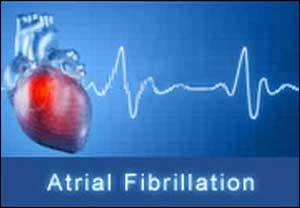- Home
- Editorial
- News
- Practice Guidelines
- Anesthesiology Guidelines
- Cancer Guidelines
- Cardiac Sciences Guidelines
- Critical Care Guidelines
- Dentistry Guidelines
- Dermatology Guidelines
- Diabetes and Endo Guidelines
- Diagnostics Guidelines
- ENT Guidelines
- Featured Practice Guidelines
- Gastroenterology Guidelines
- Geriatrics Guidelines
- Medicine Guidelines
- Nephrology Guidelines
- Neurosciences Guidelines
- Obs and Gynae Guidelines
- Ophthalmology Guidelines
- Orthopaedics Guidelines
- Paediatrics Guidelines
- Psychiatry Guidelines
- Pulmonology Guidelines
- Radiology Guidelines
- Surgery Guidelines
- Urology Guidelines
Too much salt in diet can cause irregular heartbeat

Finland: Increased intake of dietary salt can lead to a common but serious heart condition of irregular heartbeat or atrial fibrillation, finds a new study.
In the study, published in the journal Annals of Medicine, the researchers have uncovered the first evidence to associate dietary salt intake with atrial fibrillation (AF) risk, a common heart rhythm disorder that affects millions of people worldwide.
Atrial fibrillation is a quivering or irregular heartbeat that can lead to blood clots or other complications. The condition puts them at higher stroke risk, and in rare cases, can lead to heart failure. The chances of developing AF increases with age, and the condition affects about 7 in 100 people 65 and older.
Also Read: Heavy salt intake related to increased risk of stroke mortality
Tero Paakko, from the University of Oulu in Finland, and colleagues conducted the study to evaluate the association between dietary sodium intake and the incidence of new-onset AF.
For the study, the researchers followed 716 middle-aged men and women in Finland for an average of 19 years from the Oulu Project Elucidating Risk of Atherosclerosis (OPERA) cohort. During that time 74 of the participants were diagnosed with AF.
Key Findings:
- Those with the highest levels of salt in their diet had a higher rate of atrial fibrillation than those with the lowest salt intake.
- After accounting for several other risk factors -- including age, body fat, blood pressure, and smoking -- the researchers found that salt consumption was independently associated with the risk of atrial fibrillation.
- When quartiles of sodium consumption were considered, the AF incidence was higher in the highest quartile compared to lower quartiles.
Also Read: Reducing salt intake to very low levels increases mortality risk
The study only found an association -- it did not prove that a high-salt diet causes the heart rhythm disorder.
"This study provides the first evidence that dietary salt may increase the risk of new-onset atrial fibrillation, adding to a growing list of dangers from excessive salt consumption on our cardiovascular health," said Paakko.
"With estimates suggesting that over three-quarters of salt consumed is already added in processed foods, reducing salt intake at a population level could have a hugely beneficial impact on new-onset atrial fibrillation and overall cardiovascular disease," Paakko said.
For further reference follow the link: https://doi.org/10.1080/07853890.2018.1546054

Disclaimer: This site is primarily intended for healthcare professionals. Any content/information on this website does not replace the advice of medical and/or health professionals and should not be construed as medical/diagnostic advice/endorsement or prescription. Use of this site is subject to our terms of use, privacy policy, advertisement policy. © 2020 Minerva Medical Treatment Pvt Ltd